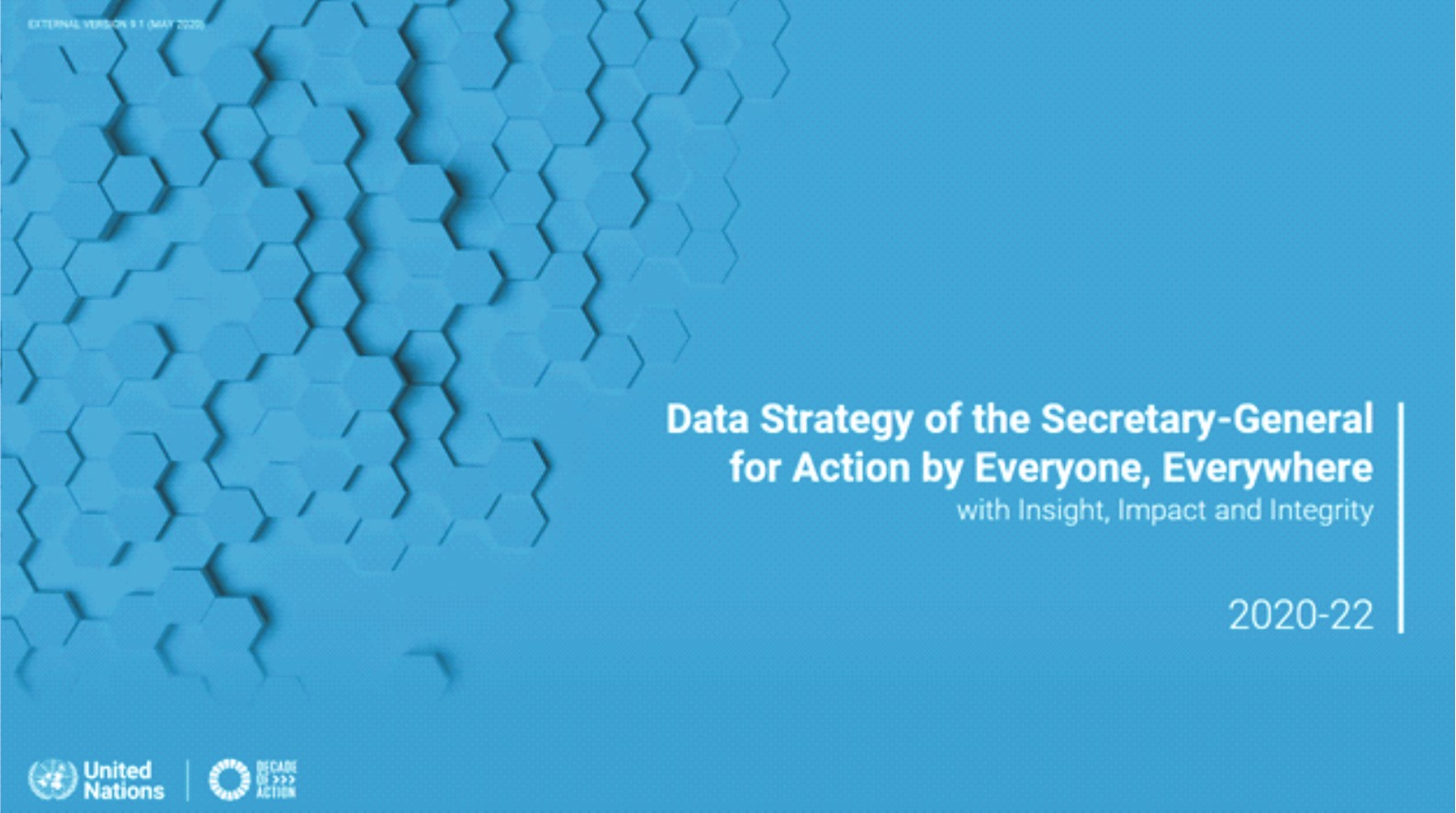
Artificial Intelligence (AI), a technology that collects, classifies, and identifies patterns in data to perform tasks that are usually done by humans, can be considered one of the most prominent buzzwords of the 21st century. With constant technological innovations such as ChatGPT, DeepSeek AI, etc., AI has found top priority among all important actors in world politics. This is especially true for the United Nations (UN) and other international organisations.
Being one of the largest inter-governmental agencies influencing international relations, the United Nations stands at the forefront of creating long lasting impact in the fields of AI, its governance, and Just AI. In fact, given the scope and scale of its influence, the High Level Committee on Programmes (HLCP) even posits the UN to assume the role of Data Custodian for some Global Public Good Data.
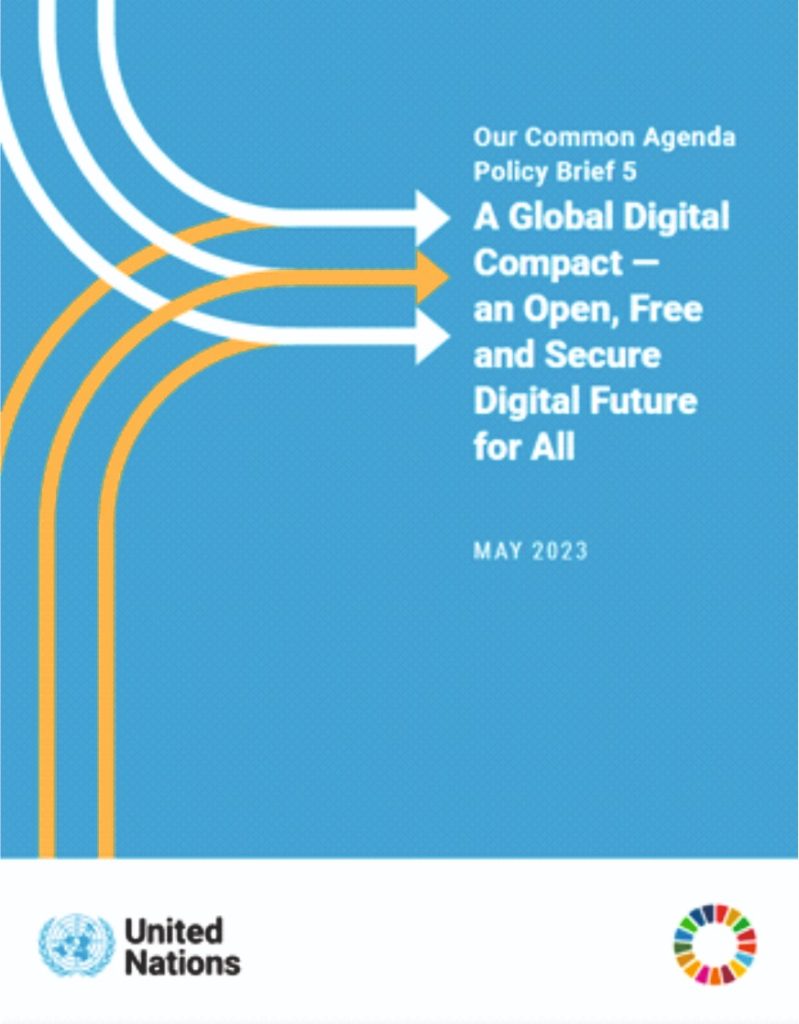
Moreover, the UN has also set up the Inter – Agency Working Group on AI and the Office for Digital and Emerging Technologies. Under the latter, the UN also proposed a policy brief on a Global Digital Compact, highlighting the need and advantages of digital governance.
UN’s approach to AI can be classified under two headings:
- Adoption of AI by UN Systems for their internal functioning
- Adoption of AI by Member States and other institutions
______________________________________________________________________________
ADOPTION OF AI BY UN SYSTEMS FOR THEIR INTERNAL FUNCTIONING
The United Nations has been extremely proactive in recognising the need to adopt AI within its own structures and bodies to increase efficiency and enhance productivity. One of the first few guiding documents is a UN System-wide strategic approach and roadmap for supporting capacity development for AI. It highlights the key goals and themes for the UN Systems in their work towards AI governance and adoption. These range from data, infrastructure, human and social capabilities, human rights and international law, etc. It also classifies implementable actions such as training of members, identification of risks, etc. onto an urgency spectrum and provides a roadmap for the same.
At the Joint Session of the High-Level Committee on Programmes (HLCP) and the High-Level Committee on Management (HLCM) in 2023, a was set up to develop system guidelines and model policies on the ethical use and adoption of AI within UN Systems.
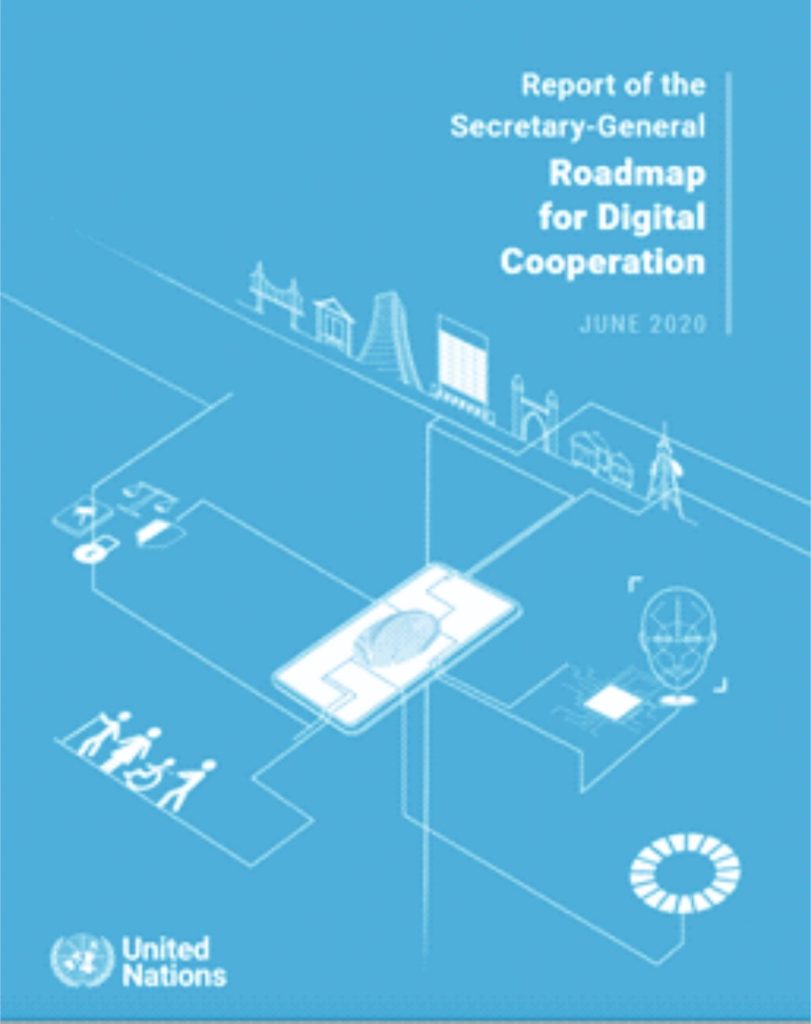
As a part of its Report on the Operational Use of AI in the UN System (2024), the task force acknowledged that the decentralized nature of the UN System presents challenges with regards to AI adoption, development, and integration. The report also provides an overview of the initiatives taken by the UN to date for adopting AI in its functioning. These include The UN Sec-Gen’s Roadmap for Digital Corporation (2018) that emphasises digital inclusion, capacity development, and aligning data use with human rights laws. Other key initiatives are the UN 2.0 Quintet for Change and the UN Sec. Gen’s Data Strategy for Action by Everyone, Everywhere with Insights, Impact, and Integrity: 2020 – 2022. As one of the earliest UN guiding documents on AI, the Data Strategy explains in detail how AI can be utilized and highlights its potential benefits.
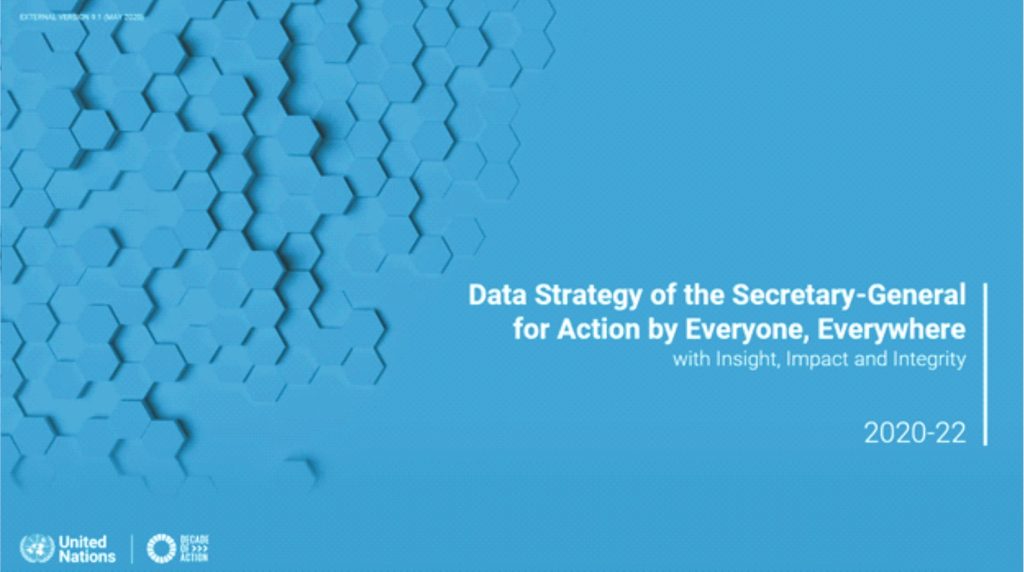
To summarize the above initiatives and the UN’s agenda for adopting AI in its functions:
- Ensure inter-agency cooperation for data sharing and management
- Create guidelines for ethical use of data, especially focusing on data responsibility and accountability
- Ensure internal capacity development to fully leverage AI and data usage for its own humanitarian work.
- Create a comprehensive digital data repository that can be accessed responsibly for inter-agency cooperation
- Align ethical data guidelines with international human rights law and similar legal frameworks.
- Lead UN towards becoming a world model agency for the ethical adoption, use and store of data globally.
Among the many reports supporting the above issues, one of the most important and comprehensive is the Framework for a Model Policy for the Responsible Use of AI in UN Systems. This model policy is structured around the the Principles on the Ethical Use of AI – a set of principles, which forms the foundation of much of the UN’s work on AI Governance – and identifies eight principles for adoption within UN Systems. The principles are as follows:
- Do No Harm
- Defined Purpose, Necessity, and Proportionality
- Safety and Security
- Right to Privacy, Data Protection and Data Governance
- Human Autonomy and Oversight
- Transparency and Explainability
- Responsibility and Accountability
- Inclusion and Participation
The report places special emphasis on ensuring AI guidelines comply with international law, including human rights law, data protection and privacy regulations. It also highlights the need to ensure that AI-generated content respects cultural sensitivities and avoids perpetuating harmful stereotypes.
Risk Identification and Assessment
The report further acknowledges the scale, seriousness and scope of the risks associated with AI systems such as discrimination in data sets, violating data privacy, unethical use and sharing of data, and lack of data legitimacy. As a result, it proposed the need for AI Impact Assessment Tools to identify and mitigate such risks. Special emphasis is placed on the need to develop tools for risk ownership and accountability structures. It also classifies risks into Low, Medium, High, and Very High categories, and provides related action points.

The issue of Ethical Impact Assessment tools, within UN systems and beyond, has subsequently been taken up by UNESCO. UNESCO’s focus on AI also includes various thematic areas such as Women and AI, Business and AI.
Adoption of AI by Member States and other institutions:
As a part of its efforts to lead global data and AI management, the UN is in the initial phases of building consensus for joint global action on this issue, along with possible measures to address it. Since no global agreements, conventions, or similar frameworks have been established for a Just AI transition or collaboration on AI among UN Member States, its various reports and documents remain anticipatory in nature.
International Data Governance: Pathways to Progress
The (2023) stands to be one of the foremost UN initiatives for promoting AI collaborations and governance globally. It recognises the need and benefits of optimum AI across for both the individuals and at larger levels. It also recognizes the cost of not adopting AI (lost innovation and progress).
It notes how Member States have developed regulatory frameworks related to data, most notably in relation to privacy and data protection, open data, and an increasing number of localizing measures. However, with the nationally limited jurisdiction of these frameworks, it advocates for a global framework. All the while, it is also essential to recognise innovative national solutions such as Japan’s proposal for data flow with trust and Switzerland’s advocacy for digital ‘self-determination’. It proposed Collective Data Governance (similar to European Data Strategy) within which collective members define a common pool of data that can be collectively valued and governed considering their best common interests.
The document also stands crucial as it highlights the risks currently associated with AI use. For e.g., most of the data used for public good is currently under private ownership, which is under no obligation to use it ethically. There has also been a spike in data-localisation i.e. restriction for data sharing and flow by countries. This can lead to deepening the North-South divide and global inequalities.
It also highlights that any framework or guidelines for ethical AI use must focus especially on data responsibility and data accountability. The former ensures protecting the people whose data is being collected (the people behind the data) and the latter creates continuous assessment to ensure a responsibility framework is well developed and applied.
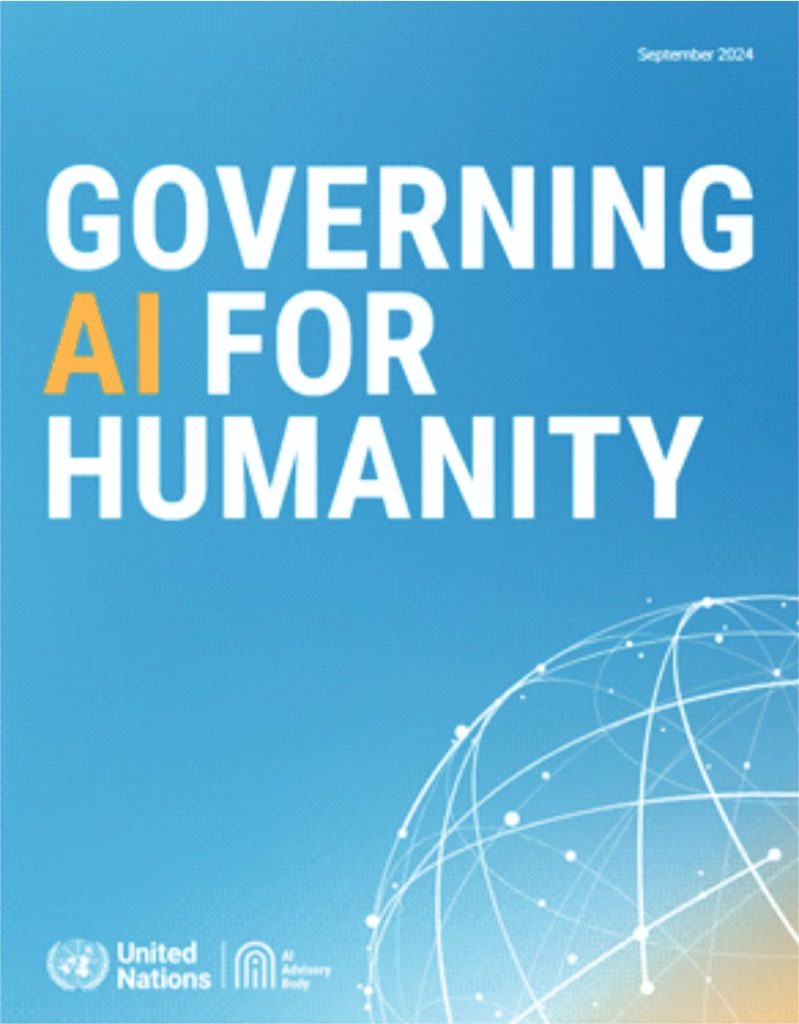
The Governing AI for Humanity: Final Report is another important document for the UN’s mission towards AI Governance. It has been authored by the High-level Advisory Body on AI, established under the United Nations (UN) Secretary-General’s initiative. It highlights the benefits of AI in multiple fields such as agriculture, science and technology, climate change, education, etc to build the case for global partnership for AI. It goes further to identify three major gaps in global AI governance –
- Representation Gaps – AI Governance issues currently exclude several developing and under-developed countries as well as communities in the world. Rather, the field is largely dominated by a few countries such as the US, UK, France, etc. Moreover, developing countries also lack the capacity to influence AI governance frameworks to protect themselves from exploitation.
- Coordination Gaps – The various national AI frameworks that exist are disconnected.
- Implementation Gaps – There do not exist strong accountability and assessment models that have been adopted across the world, leading to fragmented implementation, especially by private bodies.
The document also provides recommendations for enhancing global cooperation across three themes – Common Understanding, Common Ground, and Common Benefits. Under the first, it recommends creating an international scientific panel on AI for ensuring uniform standards and use of AI, imparting impartial knowledge on AI. Under Common Ground, it seeks to initiate policy dialogues and institutionalized mechanisms for AI standards exchanges. Lastly, under the third heading, it proposes common sharing data for the benefit of all through common data networks as well as a global AI fund.
Lastly, the document also proposes the setting up of a special AI desk in the UN for the promotion, research, and study of AI.
The UN 2.0 Policy Brief connects the cause of Just AI with the UN SDG goals. It focuses on building modern data expertise through improvement in collecting, handling, and governing of data from more diverse sources for better insights and actions. Most importantly, the policy brief recognises and important usage of data for humanitarian works – Behavioral Science, which involves understanding how people act and make decisions to create better choices that align with human nature.
A complete compendium of all UN documents and works on AI can be found on UN – iLibrary, UN System White Paper on AI Governance (this document also suggests learning from existing protocols in other fields such as climate to create a similar framework for Just AI) as well as the Office for Digital and Emerging Technologies website.










